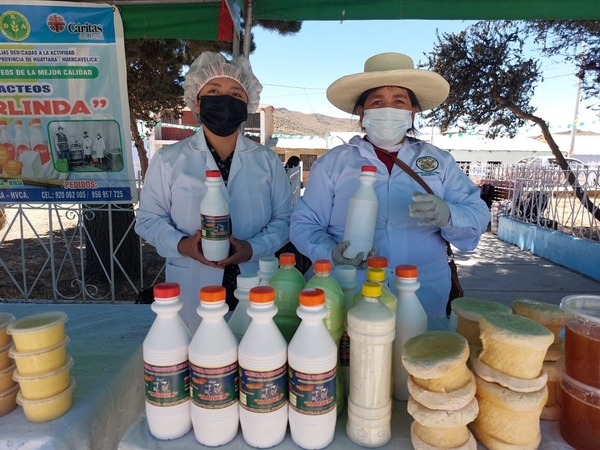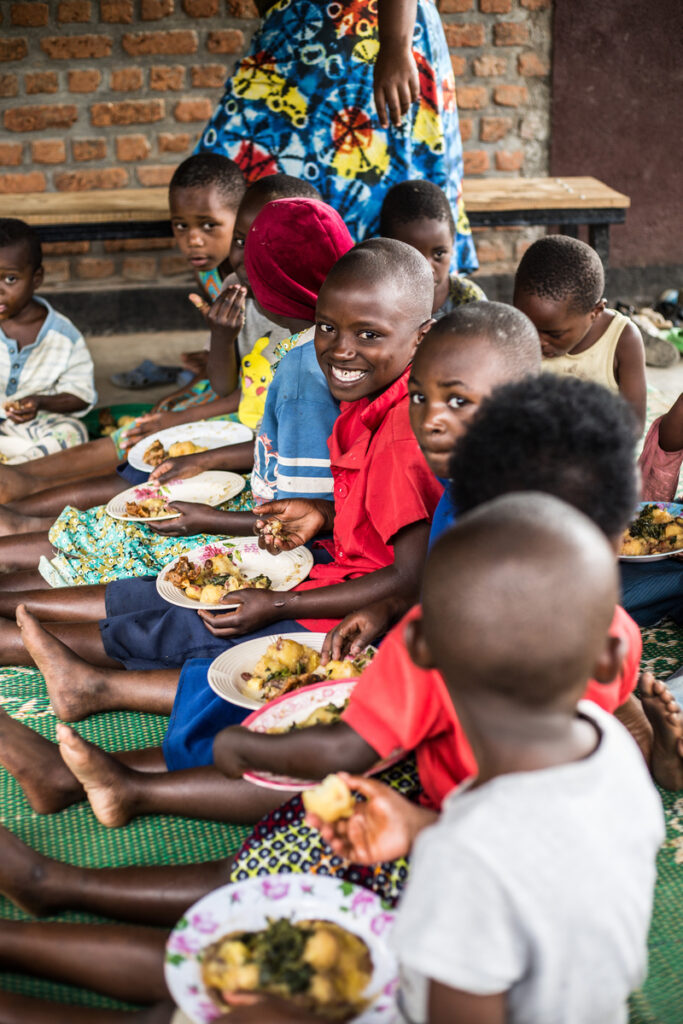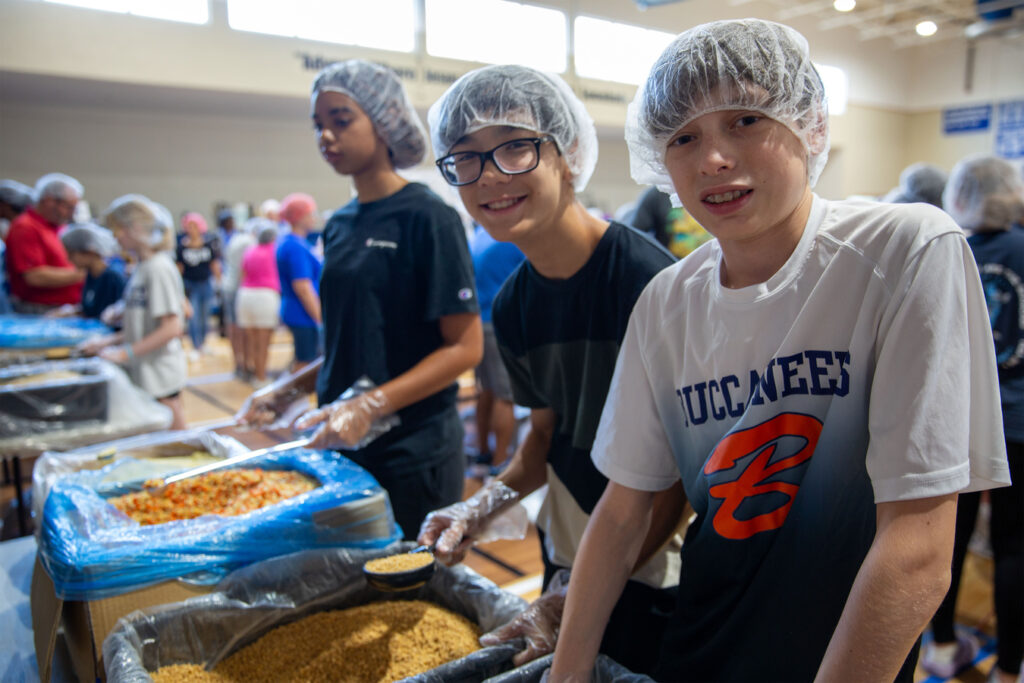May 28 marks World Hunger Day, a day dedicated to raising awareness about the ongoing global issue of hunger and advocating for solutions to end it. Today, over 783 million people worldwide suffer from chronic hunger, a staggering number that highlights the urgency of addressing food insecurity and malnutrition.
As advocates for positive change, you, our Global Champions, understand the power of collective action in combating hunger! No need to search for one of the best charities to support on World Hunger Day — a donation to our End Hunger Fund supports four vetted, top charities dedicated to providing sustainable solutions to hunger: Food For The Poor, Feed My Starving Children, Rise Against Hunger, and Heifer International. These organizations work tirelessly to provide food assistance, support agricultural development, and implement nutrition programs in communities around the world.
In honor of World Hunger Day, learn more about each organization’s transformative work below, and consider supporting all four with a single donation to our End Hunger Fund. Let’s join together to make a meaningful difference in the fight against hunger and ensure that no one goes to bed hungry.
Feed My Starving Children
Volunteers hand pack scientifically formulated meals for undernourished children, which are distributed to a network of 75+ partners in 55+ countries.
Imagine a world without hunger. This is the world Feed My Starving Children dreams of and works toward: a world where bright futures are the norm, where children, families, and communities thrive, where hope is greater because of you. Together we feed kids, feed spirits, and empower communities.
Food For The Poor
Founded in 1982, Food For The Poor is one of the largest international relief and development organizations in the United States, serving the poorest of poor.

Food For The Poor (FFTP) is partnering with Caritas del Peru to help 152 rural farmers increase their revenues from selling milk from their livestock and other dairy products.
Herlinda is a dairy farmer who works with her family in Ayavi, Peru, high in the Andean mountains. She said her family’s dairy products will improve, thanks to generous FFTP donors. Herlinda said her family’s dream is to take their products to new markets where they can sell them at a better price.
Initially, Herlinda’s family faced challenges because they didn’t have a place and lacked equipment to make their products. Because of the generosity of FFTP donors, Herlinda’s family and the other farmers have equipment that helps improve the quality and scale of dairy products while allowing them to take their products to local markets. To help her family’s business grow even more, this project is improving the processing plant, providing better pasture for their cattle and artificial insemination to increase livestock numbers and improving equipment, and business capacity.
Rosa lives in Tambo, and her family also works as dairy farmers. She views the FFTP project with Caritas del Peru as a great support for them, and it has already helped her improve her dairy products. She dreams of having a large plant with the proper equipment to make cheese.
Her greatest challenge has been appropriate packaging and sanitary registration so she can take her products to the market and get a higher price. She hopes the project will help provide further training to improve their products.
Peru, like many countries in Latin America, has struggled with rising numbers of families living in multidimensional poverty due to the convergence of COVID-19, conflict, and climate change. According to the World Bank, Peru was one of the countries most impacted by the pandemic. In 2020, the country contracted by 11 percent and extreme poverty increased to comparable levels in 2013.
In 2022, FFTP added Peru to the list of places it is focusing on in the Caribbean and Latin America, as the charity works to expand its mission to provide sustainable livelihoods for poverty-stricken families.
Heifer International
Heifer International works globally, alongside the communities they serve, providing livestock and training in sustainable agricultural practices to create the most favorable opportunity for families.

Behind a milk collection center in rural Rwanda, the aroma of food fills the air. Taking refuge in the building’s shade, local farmers are hard at work shucking corn, slicing tomatoes and peeling potatoes — all freshly harvested from surrounding fields. They lay a patterned carpet on the concrete floor and heap cooked food onto plates for their soon-to-arrive guests: mothers and young children from nearby villages.
This is the Abakundinka Community Kitchen, a space for mothers to bring their young kids for a wholesome meal. Once a month, they gather with their children to enjoy a hearty plate of nutritious food. In Rwanda, where almost one-fifth of the population faces hunger and 38% of children under 5 suffer from chronic malnutrition, the Abakundinka Community Kitchen is vital. Limited access to nutritious and balanced diets can stunt children’s development, which can lead to behavioral problems and limit their economic opportunities in the future. The community kitchen’s plates are filled with all the major food groups, serving potatoes, fresh fruits and vegetables like bananas and tomatoes, and cow’s milk and meat.
Abakundinka Community Kitchen was born out of the Abakundinka Farmer Field School, a dairy farmers’ group working together to better manage their livestock, grow nutritious food, earn sustainable incomes and, now, nourish their wider community. Before the children dig into their meals at the community kitchen, one of the mothers makes her way around a circle of seated kids to pour clean water over their hands. Simple acts of improved hygiene like this can drive big changes in communities. The kitchen has nurtured a strong relationship with the local village leaders, and the monthly event is attended by a health facilitator, a trained community member who works to increase local awareness of issues like hygiene and nutrition. The facilitator supervises the kitchen’s activities and advises the mothers on what a balanced diet looks like.
Rise Against Hunger
Growing a global movement to end hunger by empowering communities, nourishing lives, and responding to emergencies.
Rise Against Hunger is on the road to end hunger, aligned with the United Nations Sustainable Goal #2 of Zero Hunger.
From the implementation of sustainable community development projects to their meal packaging program that harnesses the passion of local volunteers, Rise Against Hunger strives to make an impact on hunger by building resilience, self-sufficiency, and empowerment in communities worldwide.
On behalf of our charity partners, thank you for your generosity and commitment to ending hunger around the world.


